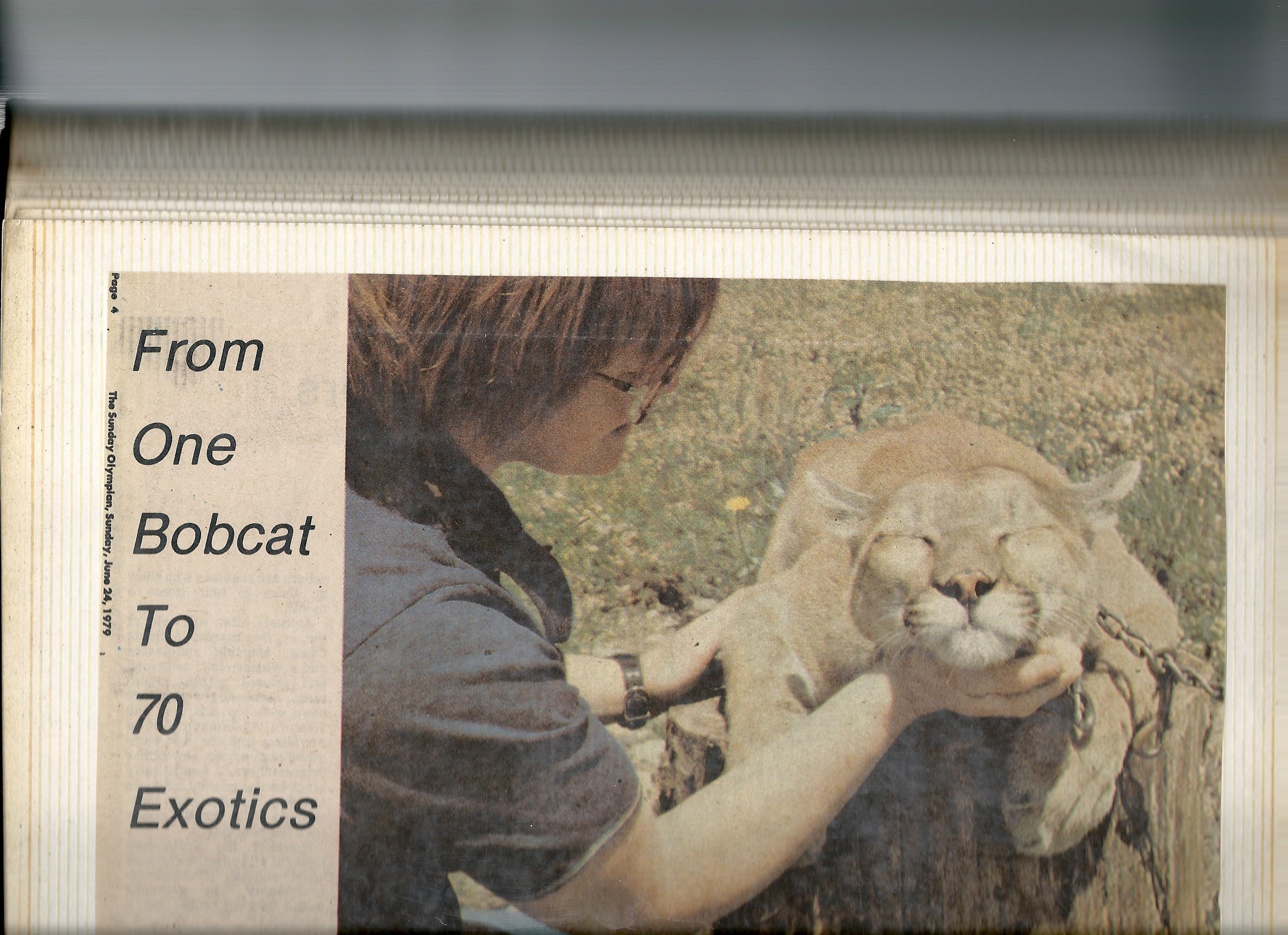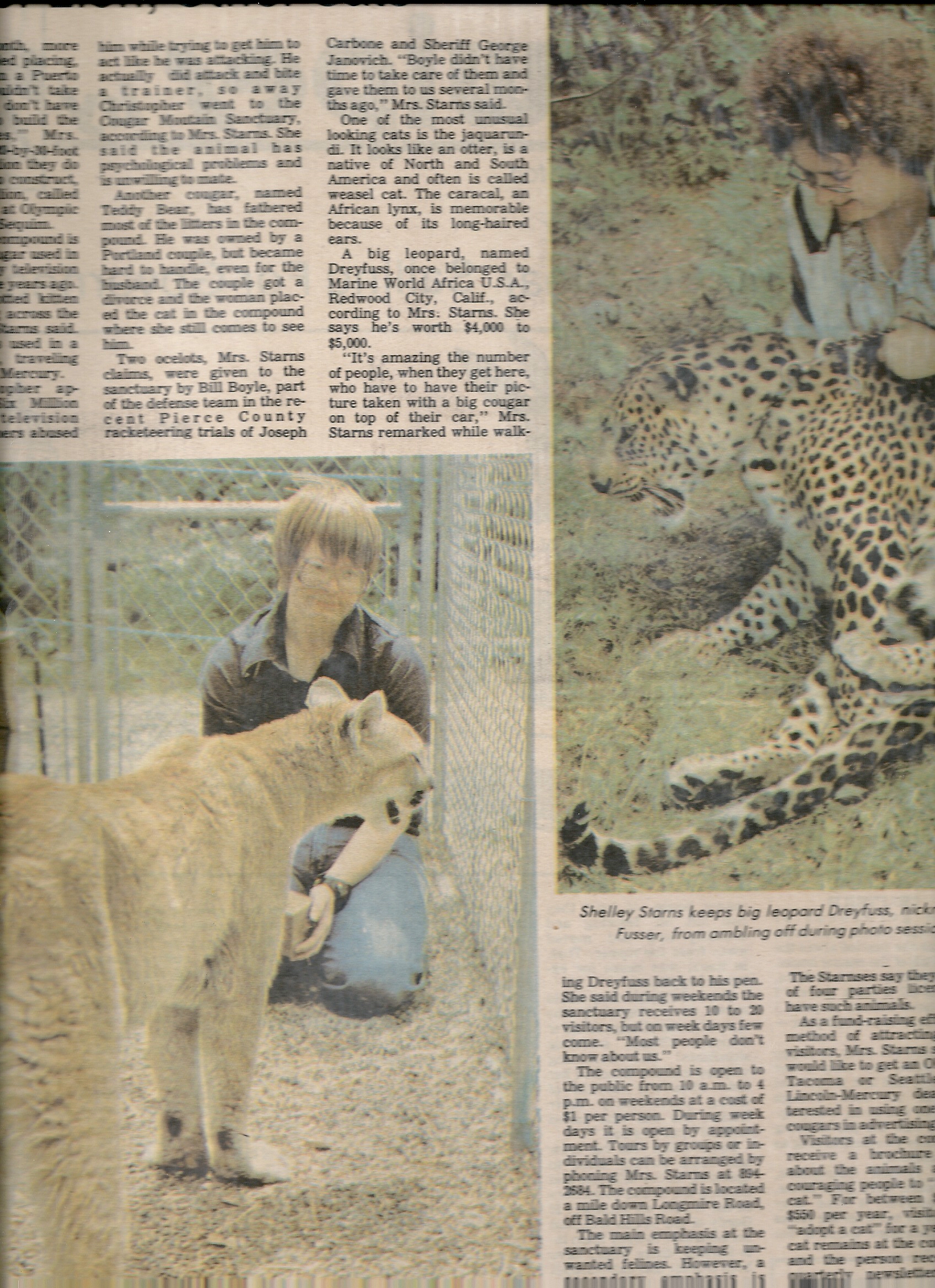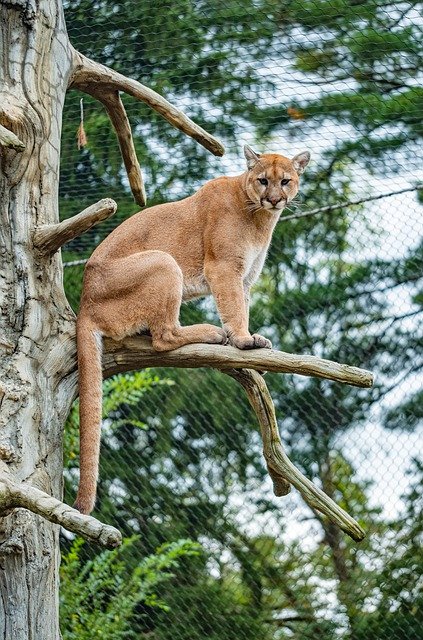Several days ago, we were alerted by the neighbors that a cougar was sighted in our neighborhood.
I will confess to being both elated and alarmed when I heard the news.
I was elated because I have never seen a cougar in the wild. I have known several cougars personally (Poppy is the cougar I’m with in two of the images below), and I loved them all.
I love cats, period, no matter what size they are.


But I was also alarmed because I have four small breed goats out in the pasture, all of whom I love every bit as much as I love cougars.
The neighbors said the cougar ran as soon as it caught sight of or heard them, so I immediately put a radio out near the goat shed and turned it on. It will remain there, day and night, until I hear the cougar was caught and relocated or (less happily) shot and killed.
I don’t begrudge cougars their need to survive. We’ve made it challenging for them to continue to exist by way of eating wild prey — having reduced their habitats and encroached on their hunting ranges — and we’ve made it possible for them to find food anyway because we cage or fence in our livestock, and we have free-roaming pets.
My cats come in at night on their own, like clockwork. They’re no dummies — they know nighttime is the most dangerous time for them to be out.
My goats don’t have that option. So, we make sure we have motion-sensor lighting outdoors (which frightens away most wildlife). I bought additional motion-detecting lighting and added it just outside the goat shed, so that if anything comes near, it will get its eyes flooded with LED lighting (not a pleasant experience).
So far, these extra precautions seem to be all that’s required. Goats retire at night, too, into their shed and lie quietly, so it’s unlikely the cougar would even know they’re there. (If you’ve ever watched a housecat catch a mouse, a rat, or a snake, the moment the prey goes motionless beneath its feet, the cat has a heckuva time, wondering where its dinner or toy has gotten off to. Cats respond to movements more than to scents, which is why hikers are told never to RUN if they see a cougar. Freeze and stand still. IF it comes closer — unlikely — continue to stand your ground and enlarge your body by opening your arms wide and keeping them over your head. There have been very few attacks on humans by cougars, even on humans who are in motion: bike riders, joggers, etc.)
Anyway, I’m straddling the fence when it comes to cougars: I want them to continue to exist around here, and I don’t want them in my goat pasture. I don’t want to see them killed.
Relocation is an option. But for every cougar we see, there are probably more we don’t. And so far, there have been no issues.
A cougar’s range is some 30 miles, so it’s nearly always usually somewhere else on its range. Cougars have been spotted around here before. So far, there has been no loss of livestock. But two mares nearby are pregnant, and when they give birth, there will be the scent of afterbirth and small foals. At that time, extra vigilance will likely be needed.
I want the cougar to stay safe every bit as much as I want the foals to remain safe.
It’s a real pickle. My heart is firmly on both sides of the fence!
I want a happy ending for both sides.
That isn’t what usually happens in the wild, though — any more than it is what happens here in this society, sadly enough…
Sometimes cougars/goats/foals win, and sometimes they lose.
I love animals, period — predator and prey, wild and tame.
So I do my best to allow them both to live. I don’t think I could, or would, shoot or beat the cougar unless it had one of my goats in its jaws. But I would not begrudge anyone else who defended their livestock, as long as the cougar is caught in the act and not simply “presumed guilty” because it’s in the vicinity.
Cougars eat deer, bobcats, coyotes and other wildlife that they can catch, so they also help keep other predator and prey species in check. They have their role to play in the circle of life. I deeply respect and honor that…




